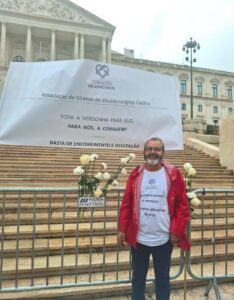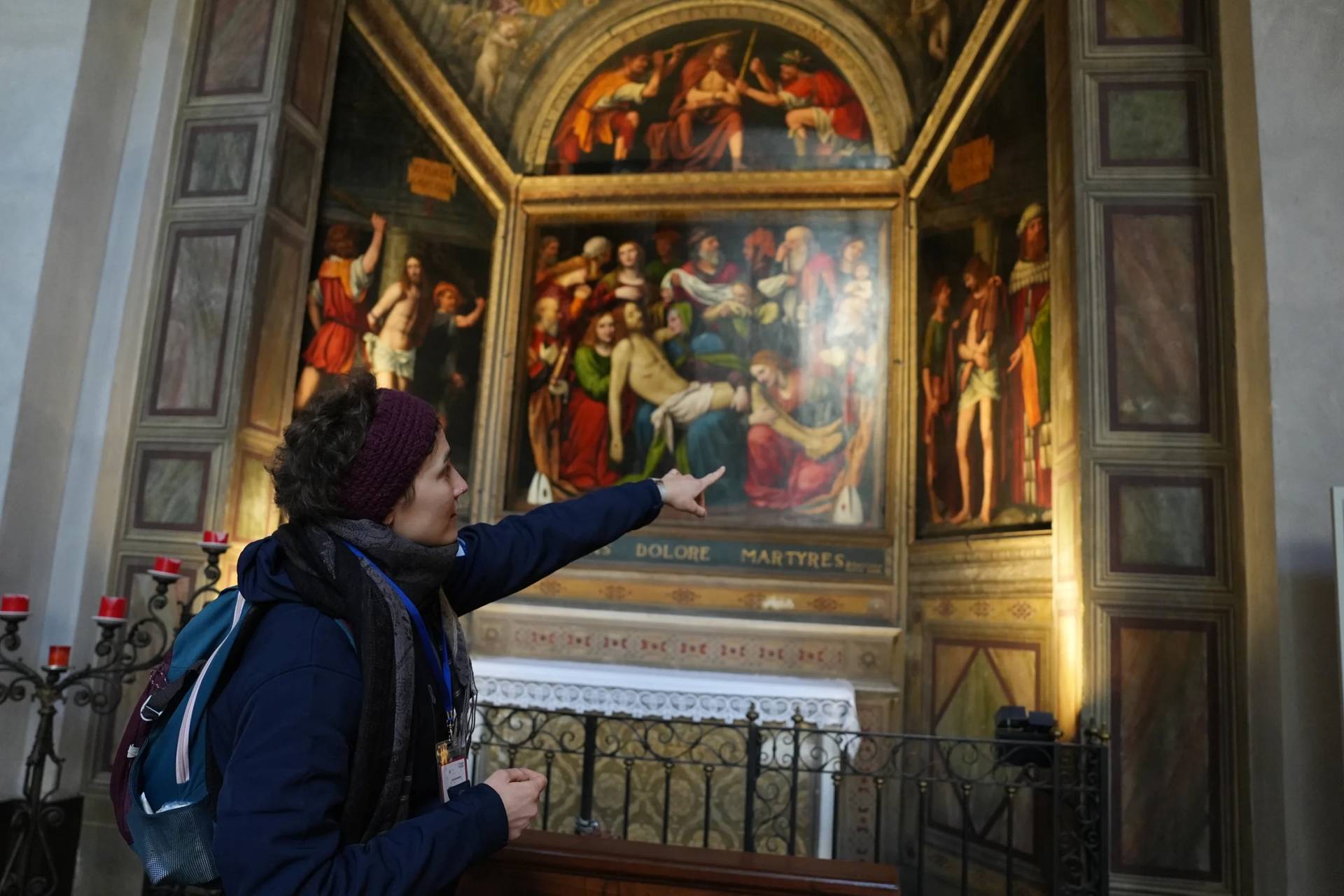SÃO PAULO, Brazil – After a 2023 report by an independent commission found that at least 4,815 people have been abused by Portuguese church officials, especially clergy, between 1950-2020, the European country’s bishops pledged to financially compensate victims.
Yet for the last two years, nothing has been done.

Coração Silenciado (“Silenced Heart,” in Portuguese), an association of victims of clerical abuse, is protesting against the inaction from both the church and the Portuguese government. It claims that the bishops are looking for ways to delay the Church being held accountable.
On Sept. 27, a group of victims and relatives gathered in front of the Portuguese Congress in Lisbon in order to demonstrate against the government’s negligence in the case. António Grosso, a founding member of Coração Silenciado, accused authorities of having failed to protect Portuguese citizens from abuse, to secure compensation for the victims, and to prevent new abuses from happening in the future.
“When the report was published – and it contained 512 validated testimonies – the reaction of the bishops was one of total contempt. Then-Patriarch of Lisbon [Cardinal Manuel Clemente] declared that it wasn’t more than a list of accused priests, ignoring 500 pages of testimonies of victims,” Grosso told Crux.
During a press conference in March 2023, Clemente also said that “many of the cases in the analysis occurred 50, 60, many years ago,” when “the legislation was nothing like today, it [sex abuse] wasn’t even considered to be a public crime nor a crime against people, it was just indecent assaults dealt with by good words.”
When asked about financial compensation, Clemente said the idea was even “insulting” for the victims, given that most of them hadn’t “mentioned the subject.”
“The consequence was that, instead of taking into account the 512 validated testimonies, contacting the victims and dealing with the financial compensations from the beginning, the bishops’ conference has been dragging its feet,” Grosso said.
A commission appointed by the church has been interviewing the victims again – 77 of them have already been heard – in a process defined by the association as “highly bureaucratic and revictimizing.”
“The church claims it has to ‘detect the verisimilitude of the narrated facts.’ Not even Pope Francis worried about something like verisimilitude when he met 20 victims here in Lisbon and listened to their stories,” Grosso said.
A committee for the determination of the amount of financial compensation each victim will receive still has to be formed by the episcopate. It will have seven members, with no delegate of the victims. It was supposed to begin work on Sept. 1st.
In Grosso’s opinion, the idea of establishing different compensation levels is absurd.
“We don’t know of any measuring instrument to quantify the trauma and the sufferings caused by sex and psychological abuse and by physical mistreatment,” he said. “The only thing that exists is the subjectivity of those who want to assert that victim A suffered more than victim B.”
He recalled the case of an older lady who approached in 2024 in order to describe the abuses she suffered when she was only 10 in a school of nuns.
“She kept silent for 80 years. During those years, suffering can develop or decrease, depending on multiple circumstances – including those of genetic, social, or psychological nature,” Grosse said.
If suffering doesn’t have a price – as a bishop once said – then the committee shouldn’t establish a price list for pain, he said.
Coração Silenciado has been arguing that the ideal way of compensating the victims would be to determine a single amount to be distributed equally among the ones who seek compensation. That was the model applied in Switzerland, for instance.
“That compensation is merely symbolic. It doesn’t even encompass all victims. Certainly, dozens of thousands of people will not be compensated,” Grosso said.
The demonstration on Sept. 27 was also promoted by Spanish associations of victims. In the neighboring country, compensations have not been paid yet as well. They told the press that Spain’s and Portugal’s churches have been equally distant from the lessons of Pope Francis when it comes to abuse in the Church.
“Those who believe in Jesus can only imagine a simple and humble Jesus asking forgiveness and, without red tape, no civil code, compensating everybody equally, with dignity, without creating inequality and envy among the victims,” Grosso said.













